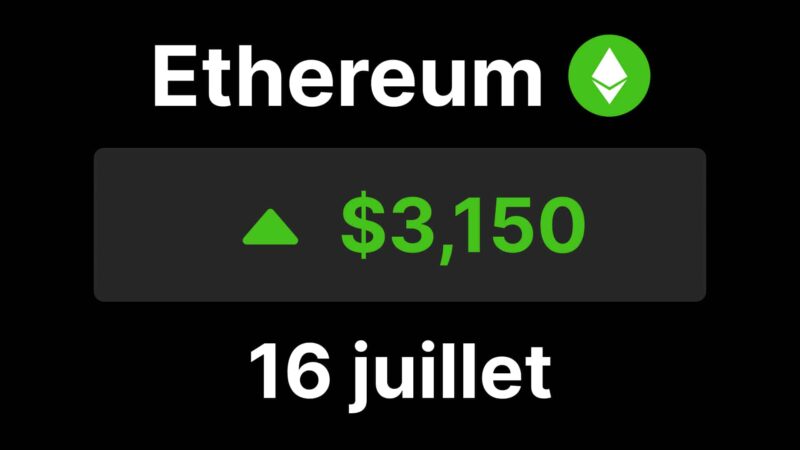The President of the SEC, Paul Atkins, aims to introduce an ‘innovation exemption’ to simplify the tokenization of financial assets and boost onchain exchanges, marking a departure from Gary Gensler’s policies.
GENIUS Act: A Green Light for Stablecoins (and a Message to the Fed)
The lines are rapidly shifting in the United States. For the first time, the head of the SEC is considering loosening the regulatory grip on the crypto industry. According to Bloomberg, Paul Atkins, the new face of the institution, wants to create an ‘innovation exemption’: a flexible framework to accelerate the tokenization of the real economy. A catchy slogan is already making waves:
If it can be tokenized, it will be tokenized.
Behind the scenes, discussions are accelerating. The goal: enabling new onchain trading models, and most importantly, encouraging the creation of an ecosystem for tokenized financial securities. A revolution for Wall Street and for DeFi.
This shift in mindset did not happen by chance. Thursday, the House of Representatives passed the GENIUS Act, a long-awaited law by the sector. Two other key texts accompany it: the CLARITY Act, to regulate digital asset markets, and the Anti-CBDC Surveillance State Act, aimed at blocking the emergence of a state-monitored digital dollar.
The GENIUS Act clarifies a crucial point: stablecoins are not financial securities. They will now be supervised by banking authorities, not the SEC.
A huge relief for issuers and for DeFi, which sees it as an official recognition of its model. Ethereum developer Eric Conner does not hide his satisfaction:
It’s the clearest signal to date that DeFi is winning the regulatory battle.
Trump as the Final Arbiter
The ball is now in President Trump’s court, a strong crypto supporter during his campaign. Once signed, the GENIUS Act will take effect within a maximum of 18 months, or 120 days after the final regulations are published by the Treasury and the Federal Reserve.
The effects will not be immediate, but the direction is clear: Washington wants to integrate crypto into its financial system, provided the right rules are in place.
A 2025 Version of the SEC, More Open… But Still Cautious
Paul Atkins clearly differs from his predecessor Gary Gensler. While the latter pursued legal actions, the new president prefers to talk about efficiency, transparency, and risk reduction through blockchains. He advocates for an ‘intelligent’ oversight rather than a regulatory barrier.
But Atkins emphasizes that not everything will be allowed. Innovation yes, but not at the cost of chaos. Transparency, disclosure, and compliance requirements will remain central. Especially for projects related to retirement or public savings.
A Battle Far From Over
On the Democratic side, Senator Elizabeth Warren denounces a bill that ‘threatens consumers.’ She highlights the risks of fraud, manipulation, and the lack of safeguards on stablecoin reserves.
The debate is far from over. But one thing is certain: the United States is finally setting foot on the path towards consistent and constructive crypto regulation. And the whole world is watching.




